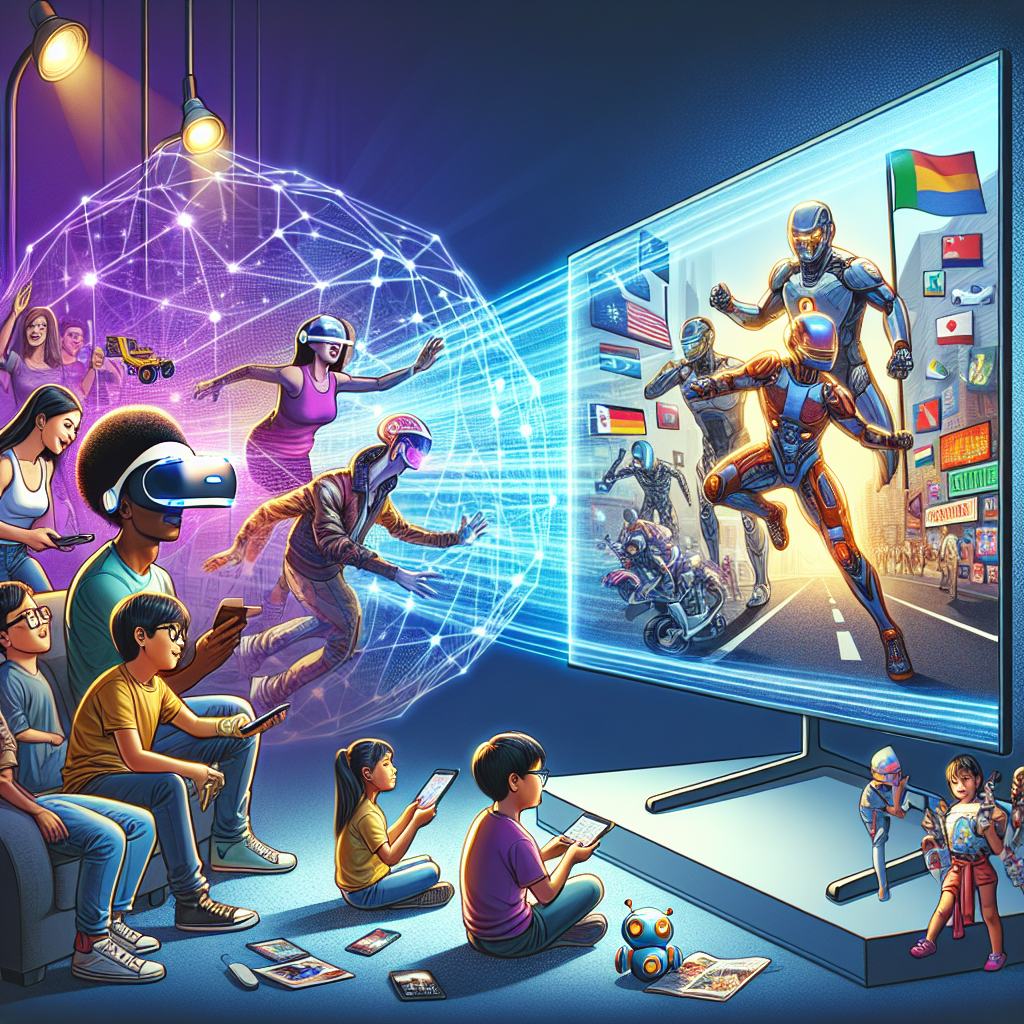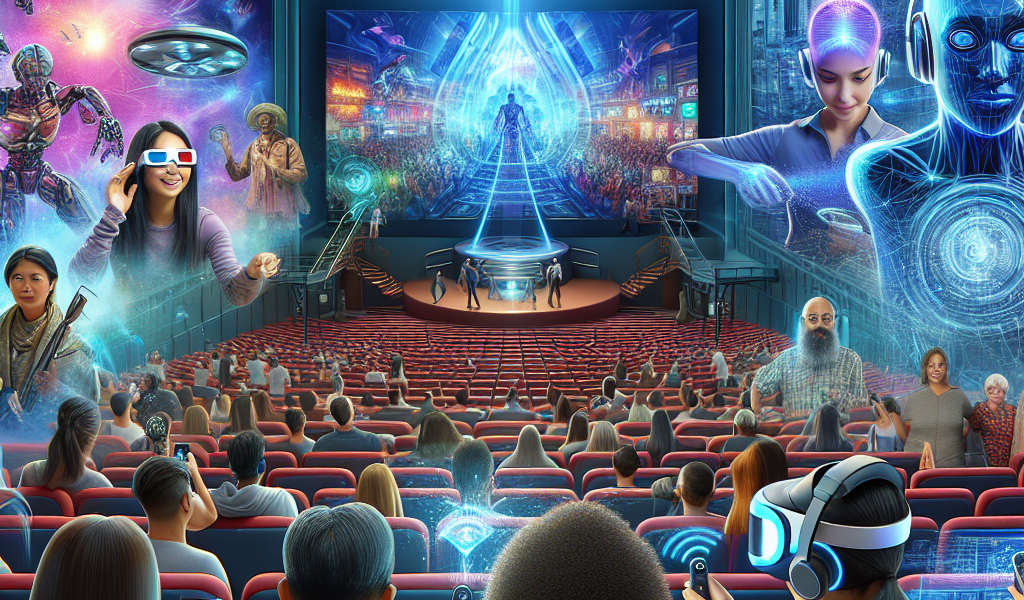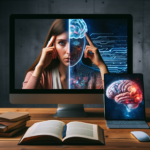-
Table of Contents
“Transforming Dreams into Digital Realities: The Tech Revolution in Entertainment”
Introduction

The entertainment industry is undergoing a profound transformation driven by rapid advancements in technology. From the way content is created and distributed to how audiences engage and interact with it, technology is reshaping every facet of entertainment. Innovations such as artificial intelligence, virtual reality, augmented reality, and blockchain are not only enhancing the quality and accessibility of entertainment but also creating entirely new forms of experiences. Streaming platforms, powered by sophisticated algorithms, are personalizing content delivery, while social media and digital marketing are revolutionizing how entertainment is promoted and consumed. As technology continues to evolve, it promises to unlock even more possibilities, making the entertainment industry more dynamic and immersive than ever before.
The Rise of Virtual Reality in Entertainment
The entertainment industry has always been at the forefront of technological innovation, constantly evolving to captivate audiences and enhance their experiences. In recent years, one of the most groundbreaking advancements has been the rise of virtual reality (VR). This immersive technology is not only transforming how we consume entertainment but also how creators produce it, offering a new dimension of engagement that was previously unimaginable.
Virtual reality has made significant strides in the gaming sector, where it initially gained traction. Gamers are no longer confined to the limitations of a screen; they can now step into meticulously crafted worlds, interact with characters, and experience narratives in a deeply personal way. The sense of presence that VR provides is unparalleled, making players feel as though they are truly part of the game. This level of immersion has opened up new possibilities for storytelling, allowing developers to create more emotionally resonant and impactful experiences.
Beyond gaming, VR is making waves in the film industry. Filmmakers are exploring this technology to craft stories that viewers can experience from within, rather than as passive observers. Imagine watching a movie where you can look around and see the environment from the protagonist’s perspective, or even choose different paths that alter the storyline. This interactive element adds a layer of depth to storytelling, making it more engaging and memorable. Directors and producers are excited about the potential of VR to revolutionize cinema, although it comes with its own set of challenges, such as the need for new filming techniques and equipment.
The music industry is also embracing virtual reality, offering fans unprecedented access to live performances and behind-the-scenes content. Artists are hosting VR concerts, where fans can feel as though they are standing in the front row, regardless of their physical location. This not only enhances the concert experience but also makes it more accessible to people who might not be able to attend in person. Additionally, VR is being used to create immersive music videos that allow fans to explore the creative vision of their favorite artists in a more interactive way.
Moreover, virtual reality is finding its place in theme parks and other entertainment venues. Attractions are being designed to incorporate VR elements, providing visitors with experiences that blend the physical and digital worlds. For instance, roller coasters equipped with VR headsets can transport riders to fantastical realms, adding an extra layer of excitement to the thrill of the ride. These innovations are redefining what it means to be entertained, pushing the boundaries of imagination and reality.
However, the rise of virtual reality in entertainment is not without its hurdles. The technology is still relatively expensive, which can be a barrier to widespread adoption. Additionally, there are concerns about the potential for VR to cause motion sickness or other health issues. Despite these challenges, the industry is optimistic about the future of VR, investing in research and development to make it more accessible and user-friendly.
In conclusion, virtual reality is revolutionizing the entertainment industry by offering new ways to engage with content. From gaming and film to music and theme parks, VR is enhancing the way we experience stories and performances, making them more immersive and interactive. While there are challenges to overcome, the potential of this technology is immense, promising a future where entertainment is not just something we watch, but something we live.
How Artificial Intelligence is Transforming Content Creation
Artificial intelligence (AI) is no longer a futuristic concept confined to the realms of science fiction; it is a transformative force that is reshaping various industries, including entertainment. The integration of AI into content creation is not just a technological advancement but a revolution that is redefining how stories are told, how music is composed, and how visual art is created. This transformation is both exciting and daunting, as it brings forth a myriad of possibilities while also challenging traditional notions of creativity and authorship.
One of the most significant ways AI is impacting content creation is through its ability to analyze vast amounts of data to predict trends and preferences. By sifting through social media posts, streaming data, and other digital footprints, AI can identify what audiences are most interested in. This allows content creators to tailor their work to meet the demands of their audience more precisely. For instance, streaming platforms like Netflix and Spotify use AI algorithms to recommend shows, movies, and music based on user behavior, thereby enhancing the user experience and increasing engagement.
Moreover, AI is also making strides in the actual creation of content. In the realm of writing, AI-powered tools like OpenAI’s GPT-3 can generate text that is remarkably human-like. These tools can assist writers by providing suggestions, generating dialogue, or even drafting entire articles. While some may argue that this diminishes the role of human creativity, others see it as a valuable aid that can help overcome writer’s block and inspire new ideas. Similarly, in the field of music, AI algorithms can compose original pieces by analyzing existing compositions and understanding the underlying patterns. This has led to the creation of new genres and styles, pushing the boundaries of what is musically possible.
The visual arts are not left behind in this AI-driven transformation. AI can generate stunning visuals, from realistic portraits to abstract art, by learning from a vast array of images. Artists can use these AI-generated visuals as a source of inspiration or as a starting point for their work. Additionally, AI is being used in the film industry to create special effects, enhance visual quality, and even de-age actors, thereby opening up new creative possibilities that were previously unimaginable.
However, the rise of AI in content creation also raises important ethical and philosophical questions. Who owns the rights to AI-generated content? Can an algorithm truly be considered an artist? These questions do not have straightforward answers and require a nuanced understanding of both technology and creativity. Furthermore, there is a concern that the widespread use of AI could lead to a homogenization of content, as algorithms tend to favor what is already popular. This could stifle innovation and reduce the diversity of voices and perspectives in the entertainment industry.
Despite these challenges, it is undeniable that AI has the potential to democratize content creation. By lowering the barriers to entry, AI tools can empower aspiring artists, writers, and musicians who may not have access to traditional resources. This democratization can lead to a more inclusive and diverse entertainment landscape, where a wider array of stories and experiences are shared.
In conclusion, AI is revolutionizing content creation in the entertainment industry by offering new tools and possibilities for creators. While this transformation brings with it a set of challenges and ethical considerations, it also holds the promise of a more personalized, innovative, and inclusive future for entertainment. As we navigate this brave new world, it is crucial to strike a balance between embracing technological advancements and preserving the essence of human creativity.
The Impact of Streaming Services on Traditional Media
The entertainment industry has undergone a seismic shift in recent years, largely driven by the advent of streaming services. This transformation has not only altered how audiences consume content but has also had profound implications for traditional media outlets. As streaming platforms like Netflix, Hulu, and Disney+ continue to gain traction, the ripple effects on conventional television and cinema are becoming increasingly evident.
One of the most significant impacts of streaming services is the democratization of content. Unlike traditional media, which often relies on a handful of gatekeepers to decide what gets produced and distributed, streaming platforms offer a more inclusive approach. This has allowed for a broader range of voices and stories to be heard, catering to diverse audiences that were previously underserved. Consequently, viewers now have access to a plethora of niche genres and international content that would have been unimaginable a decade ago.
However, this shift has not been without its challenges for traditional media. Television networks and cable providers, once the titans of the entertainment world, are grappling with declining viewership and subscription rates. The convenience and affordability of streaming services have made it difficult for these traditional outlets to compete. Many have been forced to adapt by launching their own streaming platforms, such as NBC’s Peacock and CBS All Access, in an attempt to retain their audience base. While these efforts have met with varying degrees of success, they underscore the urgency with which traditional media must evolve to stay relevant.
In addition to changing how content is consumed, streaming services have also revolutionized content creation. The traditional model of pilot seasons and network approvals is being upended by the more flexible and data-driven approach of streaming platforms. By leveraging advanced algorithms and viewer analytics, companies like Netflix can make more informed decisions about which shows to greenlight, often resulting in higher-quality content that resonates with audiences. This data-centric approach has also led to the phenomenon of “binge-watching,” where entire seasons are released at once, allowing viewers to consume content at their own pace.
Moreover, the financial dynamics of the entertainment industry are shifting. Traditional media has long relied on advertising revenue and box office sales as primary income streams. In contrast, streaming services operate on a subscription-based model, providing a more stable and predictable revenue flow. This has led to increased investment in original content, with streaming giants pouring billions into new productions. While this has created more opportunities for creators, it has also intensified competition, making it harder for smaller players to break through.
Despite these challenges, there is a sense of optimism within the industry. The rise of streaming services has spurred innovation and creativity, pushing traditional media to rethink their strategies and embrace new technologies. For instance, the integration of augmented reality (AR) and virtual reality (VR) into storytelling is opening up exciting possibilities for immersive experiences. Additionally, the global reach of streaming platforms is fostering cross-cultural collaborations, enriching the tapestry of available content.
In conclusion, the impact of streaming services on traditional media is both profound and multifaceted. While it has disrupted established norms and posed significant challenges, it has also ushered in a new era of creativity and inclusivity. As the entertainment landscape continues to evolve, the symbiotic relationship between streaming services and traditional media will likely shape the future of how we consume and create content. The journey may be fraught with uncertainties, but it is also filled with opportunities for those willing to adapt and innovate.
Conclusion
Technology is revolutionizing the entertainment industry by enhancing content creation, distribution, and consumption. Innovations such as virtual reality, augmented reality, and artificial intelligence are creating immersive experiences and personalized content. Streaming platforms and digital distribution have democratized access, allowing for global reach and niche markets. Social media and interactive technologies are fostering real-time engagement and community building. Overall, technology is driving unprecedented change, making entertainment more accessible, engaging, and tailored to individual preferences.





